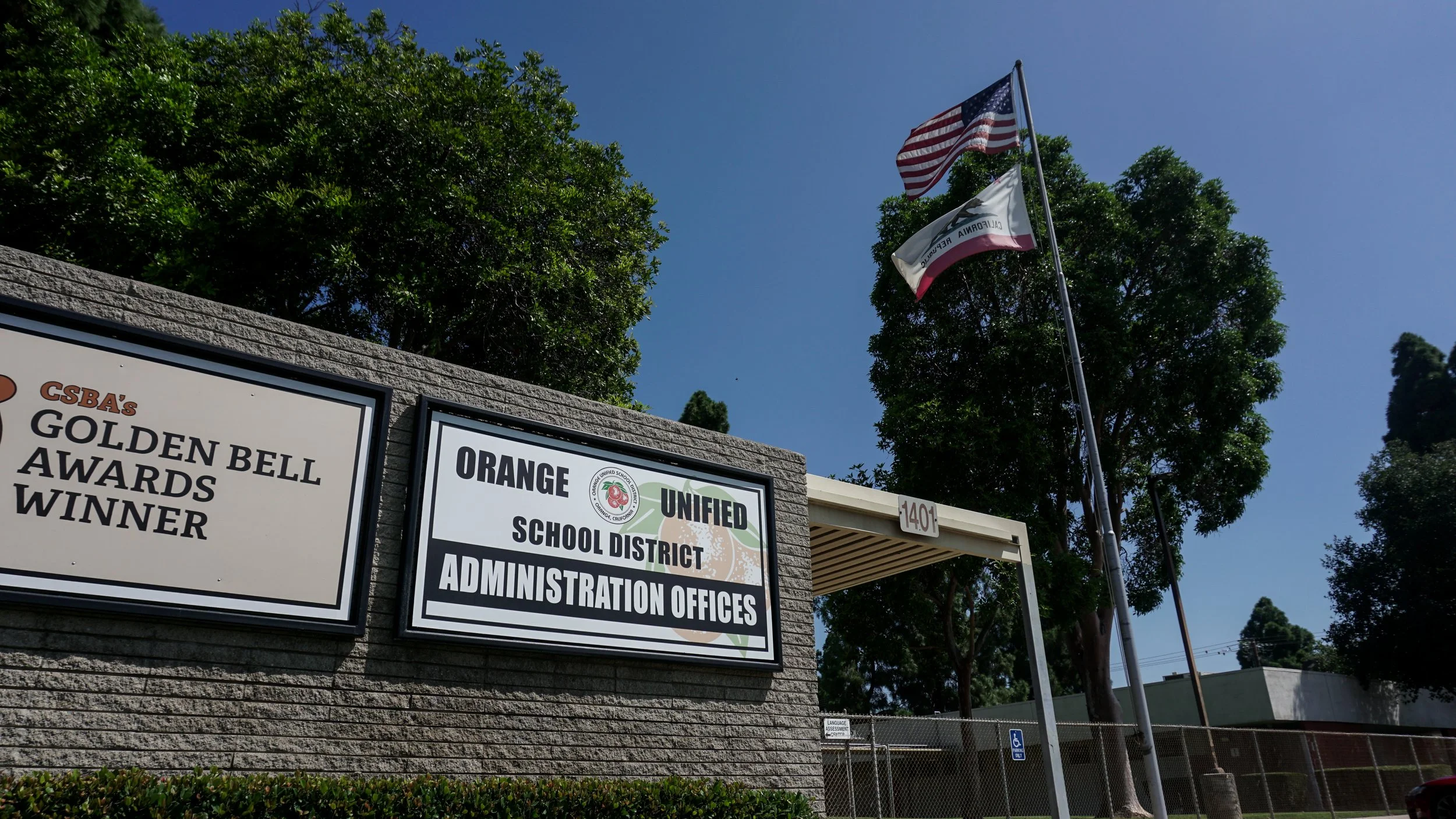City of Orange schools to implement transgender notification amid controversy from students, OC board members
The City of Orange’s school district is moving to pass a policy that would require schools to notify parents if their child identifies as transgender. Photo by JACK SUNDBLAD, Staff Photographer
A Sept. 7 vote by members of the Orange Unified School District (OUSD) has resulted in the adoption of transgender notification for schools in the city of Orange. This means that if school officials or faculty find out that a child identifies as transgender, then the school is required to inform the parents of that child.
Although the vote was a unanimous 4-0 in favor of the bill, three members of the board walked out of the meeting before the vote took place.
Criteria for notifying parents include if a child goes under a different name or pronoun than their biological sex, or if students ask to participate in a sex-segregated activity that is different from their biological sex.
“Outing students to their parents makes it seem like being transgender is a problem when it is not,” said Alexa Zuch, a senior computer science major at Chapman University who is also in the queer studies minor. “If a student wants their parents to know they are transgender, that’s their decision, and it is part of their own identity journey to learn that identifying as a gender that is not the sex you were assigned at birth is okay.”
Once the policy is implemented, a principal or school counselor would need to be notified by a teacher who sees any students fitting the criteria. The principal would then have to alert the parent within five days — unless the student is over 12 years old — in which case the principal or counsel will decide if that student’s identity being told to the parent would constitute a risk to their safety.
The move has been met with an immense amount of controversy, with minority board members expressing condemnation towards harassment and discrimination against transgender-identifying students in Orange schools. Likewise, California Attorney General Rob Bonta threatened legal action on Sept. 7 against the Orange Unified School District due to the decision.
“If adults are just barely asking about how queer and trans youth will be affected because of a lack of protections, that means they haven’t been paying attention to queer and trans youth experiences their entire lives,” said Elizabeth Sanchez, a lecturer on queer studies at Chapman.
The majority of board members, by contrast, state that the policy is meant to keep children safe by allowing parents to talk to their children about their identity and to protect the rights of parents and children in the state of California alike. At the same time, hate crimes against members of the LGBTQ+ community have risen in Orange County in recent times.
“We know across the board that students whose identities are marginalized are at higher risk of self-harm, bullying and harassment across the board,” said Roxanne Miller, the dean of Attallah College of Educational Studies. “Any type of forced revealing of a student’s identity or behaviors in which they engage in could certainly increase the risk of self-harm.”
Miller also noted that students would likely have no idea of how the process of transgender notification would work, therefore communicating less with school faculty in general. Below age 12, she noted, they would likely have little knowledge of the policy in general.
“I think this can affect how students interact with each other because I think a student who is scared of being who they are can become paranoid of those around them and be mistrusting when meeting others, and I just find it to be very messy,” Zuch said. “It just feels like a policy made to invade the privacy of students.”
“I think this can affect how students interact with each other because I think a student who is scared of being who they are can become paranoid of those around them and be mistrusting when meeting others, and I just find it to be very messy. It just feels like a policy made to invade the privacy of students.”
Miller pointed out that the policy, while brought up by parental rights activists, did little to actually help students compared to pre-existing systems in place around schools across the country meant to address students of varying identities, whether it’s related to ethnicity, gender or sexuality.
“I would like to point out that the Corona-Norco School District in early August released a statement affirming their support of LGBTQ+ students and staff, so it is not that all school districts in our local area are even entertaining policies such as this,” Miller told The Panther. “There are several school districts who are being supportive of students and their safety.”
Parental rights activists have called the policy “necessary” for a while now. The current policy has its roots in Assembly Bill 1314, which was struck down in a committee. An earlier version of the policy was presented in August, and the current policy is an evolution of it.
While these activists say that schools have no right to keep such information private from parents, others point out this violates the privacy of the students themselves.
“If you say you support your students and peers but not the students or peers who are transgender, then you aren’t actually being supportive of your students and peers,” Zuch said. “Self-identity is so difficult, and there isn’t always a title or label to it, so especially for students in middle school and high school, being able to support each other and educate each other is so easy and so important.”
“Self-identity is so difficult, and there isn’t always a title or label to it, so especially for students in middle school and high school, being able to support each other and educate each other is so easy and so important.”

